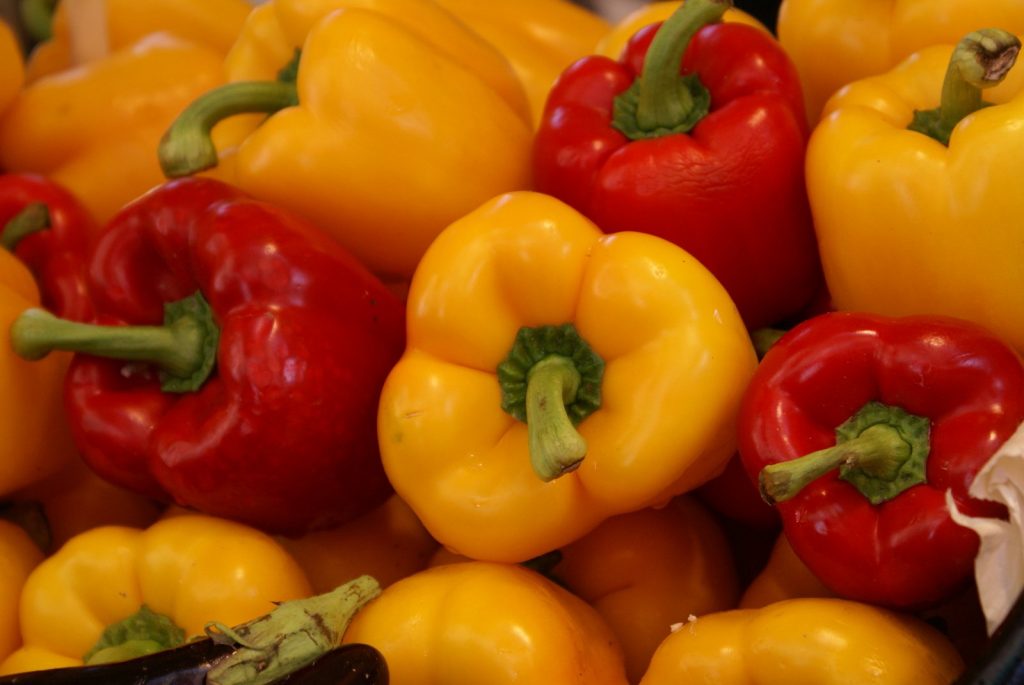The immune system is your body’s most powerful protector. It aids in the prevention of viral and bacterial attacks. It aids in the recovery of your cells after an illness. It may help to lessen the severity of a disease. That’s why you should pay careful consideration to your immune system, particularly when viruses are circulating in your area or even your home.
Adopting routines that enhance immunity is one of the most effective strategies to stay healthy. This includes getting adequate sleep, controlling stress, staying active, properly cleaning your hands, and, of course, eating well. While no meal or supplement can guarantee that you will not catch a virus, some foods have been demonstrated to help boost immunity.
You can reenergize your body and daily routine by eating these local and seasonal foods. Continue reading to learn more about these foods.
1. Red bell peppers and citrus fruits

Vitamin C, a star ingredient in citrus, is well-known for its immune-boosting properties. While vitamin C cannot prevent sickness, it has been tested in patients with respiratory infections, with the most significant benefits shown in individuals with low blood levels. This is the amount of vitamin C demonstrated in experiments to saturate the body, implying that any additional vitamin C will be expelled. Use sliced red bell pepper to shovel up hummus or guacamole, or have citrus alone or with nuts.
2. Carrots with sweet potato
Beta carotene, a precursor of vitamin A, is abundant in several vegetables. This vitamin supports the immune system by assisting in producing white blood cells that fight germs and viruses. It also aids in the formation of the mucous membranes that line the respiratory tract, which serves as a protective barrier against pathogens. Serve carrots with fresh dips like nut butter or tahini, and top a roasted sweet potato with nuts or seeds.
3. Tilgul
Essential fatty acids “add char chand to the celebrations,” according to this winter delicacy. Til contains the most calcium of any non-dairy food and essential lipids, copper, magnesium, and zinc. That’s precisely why food containing til should be consumed. It’s a fantastic cure for aching joints due to the cold weather with its unique taste and nutritional properties.
4. Broccoli
Broccoli is high in vitamin C and beta-carotene, and it also includes sulphur compounds that may help the body produce glutathione, an antioxidant. Glutathione helps the immune system by fighting free radicals and reducing the damage they might cause. This permits the immune system to concentrate on keeping healthy rather than mending harm. Other sulfur sources include most cruciferous vegetables, such as cauliflower, bok choy, and kale, which have a faint odor when cooked.
5. Garlic
Garlic’s immune-boosting qualities have been proven in studies. In an earlier trial, one hundred forty-six individuals were randomly assigned to take a garlic addition daily for 12 weeks during the cold season. Compared to the placebo group, the garlic group had much fewer colds and recovered faster if they got sick.
Aged garlic extract appears to improve immune cell activity, according to new studies. For 90 days, healthy adults aged 21 to 50 were given either a placebo or aged garlic infusion. While there was no distinction in the number of illnesses across the groups, those who took garlic had lower severity of colds and flu, fewer symptoms, and fewer days absent from work or school. Instead of taking a supplement, eat raw garlic cloves. It’s great in soups, stews, and broths.
Read More Blog:-Saffron during Pregnancy: 6 Reasons Why You Should Consume Kesar
Conclusion:
It is vital to eat a balanced diet that includes all fruits and vegetables and seasonal and regional delicacies. Many seasonal and regional foods are high in nutrients and can be incredibly beneficial to your health. Seasonal meals offer a variety of nutrients and health advantages. You can eat them in various healthy ways to get as many vitamins and minerals as possible.
The key to good nutrition is variety. Even if you eat one of these foods regularly, it won’t be enough to help you fight the flu or other infections. Pay attention to daily intake recommendations to avoid getting too much of one vitamin while getting too little of others.
